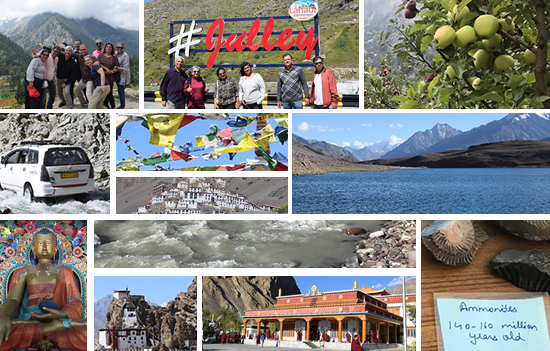- Know about origin of the Protestant work ethic. Why must Indians design an Indic way of working? In this context what is Dharma? Proposed Indic way of working.
The collapse of two banks in USA namely
Silicon Valley and Signature have got traction in India. Some say this is proof
of how badly regulated the U.S. banking system is and a classical case of asset
liability mismatch i.e. using short-term deposits to invest in long-term
government securities.
Others say that research firm and short-seller Hindenburg might have better used its resources to research these California banks instead of Adani Group. (Short selling means selling shares of a company today hoping prices would come down at a future date. Difference between today’s sale price and future purchase price is profit. Pre-computerisation Indian word for short selling was Badla.)
What is missed is that probably no
short-selling opportunity existed in these banks unlike in Adani Enterprises.
Scams and financial collapse in the West
happen often and invariably have global impact for e.g. Lehman Brothers 2008
, LIBOR Scam (London inter-bank offered rate) 2012, Singapore’s Nickel Trading
Scandal 2021, Germany’s Wire card (digital payments firm) scandal 2020, Malaysia’s 1MDB and Goldman
Sachs scandal 2012-13, U.S. Energy Trading
company Enron 2001. For more examples read Corporate Frauds by Robin Banerjee. In India Inc. the Satyam scam is remembered, others fall in the political realm.
In case of the U.S. votaries of capitalism ask for a government bailout out. Their approached is brought out by senior journalist Sucheta Dalal’s tweet of March
13, “The more you watch US regulators, you realize they are more incompetent and compromised than ours. The country is ruled by Lobbyists and works on the principle of privatizing profits and socializing losses! The ONLY difference is: Whatever they do they do it super fast!!”
Also read SVB
collapse shows U.S. Monetary and Fiscal Goof Ups have cost for the world,
benefits the U.S. And SVB Chief Greg Becker sold 3.6 million shares days before the bank’s failure
The Protestant Ethic and the Spirit
of Capitalism by Max Weber actually highlights how Christianity has been misused in the interest of Western Capitalism. This article furthers Weber's contention by arguing for a case for embracing Indian forms of work ethics to address the global economic crises.
Also read
The Protestant
ethic and the Spirit of Capitalism
Artha is one of Sanatana Dharma's Purusharthas (the others being dharma,
kama, moksha) - it means both money and existential meaning. Our sages
acknowledge that a degree of prosperity is needed for finding meaning in life.
Also read
UBS takes over
Credit Suisse
Whilst reading about repeated scams in the West recalled Devdutt Pattnaik’s book Business
Sutras, Rajiv Malhotra and V Vishwanathan book Snakes in the Ganga and author/management expert Gurcharan Das’s article The Dharma of Capitalism.
This article shares some points made by
these learned (shown in inverted commas followed by my comments), why must
India design an Indian way of working and a proposed Indian way.
1. Our Rishis realized a degree of prosperity is needed for finding meaning in life and that economic growth was a result of growth in other spheres as well.
The reality is that India is focused on
economic growth as it is seen as the best way to reduce poverty. Indians are
focussed on Lakshmi but are not investing enough time today in intellectual,
emotional and spiritual growth. Thus, mental health problems are arising.
Our forefathers thoughts are echoed by Gurcharan Das who wrote, “There is purpose to
economic activity and the ancients in India were acutely aware of this when
they posited artha, ‘material well being’, as one of the goals of life. They believed that the pursuit of money is justified to the extent that it leads to the good life. In today’s language, the pursuit of artha is to make the world a better place - to lift the poor out of poverty.” Business World The
Dharma of Capitalism
2. Devdutt Pattnaik wrote, “The purveyors of management science are mostly engineers, bankers and soldiers from 20th century North America, which is deeply entrenched in the Protestant work ethic, a unique blend of Greek and Biblical beliefs.” 2 Pg. 4
The world looks up to America/Europe as
the epitome of management and corporate governance. Few know it is actually Protestant
ethics. Around the 1980s, due to the success of the Japanese, one read of the
Japanese model. Nothing after that! The Chinese model is not written about as
much.
 Pic courtesy book Varanasi – A Passage to Immortality.
Pic courtesy book Varanasi – A Passage to Immortality.
3. In Europe it was only after the end of the thirty years war between the Catholic and Protestant states and victories over Islam that a scientific revolution took place. “By tradition, the "Scientific Revolution" refers to historical changes in thought and belief, to changes in social & institutional organization, that unfolded in Europe between roughly 1550-1700; beginning with Nicholas Copernicus (1473-1543).” Source University of Florida Post revolution,
truth had to be backed by reason, authority was not acceptable.
India never had the equivalent of the crusades (religious
wars between Christians and Muslims in Europe). Thus, the need to reject
authority (of superiors or the Vedas) was never felt. Further the concept of
reasoning existed before in India because the Indian word Darsana (simply meaning philosophy) relies on direct vision of
the truth (experienced by ancient sages all over Bharat) and
pure Buddhi (reasoning).
4. J Sai Deepak wrote in India, that is Bharat, “The concept of nation-state, may be traced to the Peace of Westphalia entered into on 25/10/1648” post wars between European feudal orders.
Post the creation of nation-states in
Europe, there was migration of people (mainly Protestant) from there to the new
land of North America.
Devdutt wrote, “Here there were no kings and clergy. Everyone was equal; work was worship, and wealth born out of effort was seen as God’s reward for the righteous. This was the Protestant work ethic, a biblical value for compliance and Greek disdain for authority.” 2 Pg. 31
Conversely, India was always a cultural unit, never a nation-state as understood in Europe and never had a clergy and religious wars. Further, “The idea of the King as the absolute monarch was never an Indian idea. It was brought from Central Asia by the Mahomedans.” (India’s Rebirth by Sri Aurobindo) Work was done based on one’s Svadharma and Karma.
Also read What is Hindu Rashtra
5. Indic faiths believe in rebirth, the West does not.
Devdutt wrote that, “Rebirth demands we accept the existence of infinitely diverse contexts existing simultaneously. Everyone sees the world differently and perspectives are bound to change with time. Thus, belief in multiple lives establishes a worldview that is comfortable with the absence of binary logic.” 2 Pg. 39
The Western approach is always binary or
dualist. Our approach has been holistic, pluralist, or, based on anekattavada.
The West believes in one life. Thus, the
value of life is what one achieves in this life hence desire to consume maximum
and become as rich as possible. Conversely, Indians believe in multiple lives
and carrying of karma from this to subsequent births, the present being
influenced by the past and future by the past and present. When seen along with
the West belief in One God, it can be construed that the West promotes
uniformity and India diversity, inclusiveness.
In Indian thought opposing strands can
co-exist. Nothing is mutually exclusive. There are two sides to a coin. As a
cross cultural trainer know that Westerners are confused with double Indian
headshake, not sure if it means yes or no.
6. To add to the above Rajiv Malhotra and Vijaya Vishwanathan wrote in Snakes in the Ganga, “German sociologist and political economist Max Weber, in his notable book advanced a theory that the values of the Protestant faith result in diligence, discipline and frugality, which became the foundations for modern capitalism. This encouraged Protestants (esp. the followers of the 16th century theologian John Calvin) to accumulate wealth, and many of them saw their materialistic success as a sign that they had earned eternal salvation from God. In America, this evolved further into the idea, that free, globalised markets reward people commensurate with their talents and initiative.” 5 Pg. 106
Does
this explain the American desire for materialistic success, profit and
consequently consumerism?
Indians follow the Protestant work
ethic. One reason is because we adopted European concepts like secularism
whilst underplaying Indic ones. Also, since the West was successful we wished to
emulate their methods. Times are changing!
 Swastik. Dev Deepavali Kashi, 2013.
Swastik. Dev Deepavali Kashi, 2013.
Why must India adopt
an Indic way of working?
Sri Aurobindo said in 1908, “If India follows in the footsteps of Europe, accepts her political ideals, social system, economic principles, she will be overcome with the same maladies. If India becomes an intellectual province of Europe, she will never attain to her natural greatness or fulfil the possibilities within her: Paradharmah bhayavahah, to accept the dharma of another is perilous; it deprives the man or the nation of its secret of life and vitality and substitutes an unnatural and stunted growth for the free, large and organic development of Nature. Whenever a nation has given up the purpose of its existence, it has been at the cost of its growth. India must remain India if she is to fulfil her destiny.” India’s Rebirth
 Abhaneri Step-Well, Jaipur is a not so known wonder of the world.
Abhaneri Step-Well, Jaipur is a not so known wonder of the world.
Here are some thoughts on the Indian Way.
1. Be Detached to the fruits of action – work because you love what you do, not because of the benefits that will accrue.
Swami Brahmananda wrote in Swami Vivekananda’s Philosophy of Work (Prabuddha
Bharata January 2023), “What Karma Yoga does is transformation of work. The Gita calls this transformation as ‘skilfulness in work’. Work done as Karma Yoga purifies the mind (creating good samskras or impressions in the mind) and gives inner satisfaction.”
From experience say that Karma Yoga
results in those positively affected by your karmas blessing you. This aashirwad is esp. useful when bad times hit you.
2. Work with Devotion – whatever work you do, do it as an offering to your Ishta Devata (personal deity). If done this way, you will give it your best.
3. Follow Dharma or Righteousness - ‘Dharma’ stands for that which holds up (or supports) the existence of a thing. Everything in this universe has its own dharma because it must rely on something for its existence. The essential nature of a thing is therefore called its dharma. (e.g. water flows. Fluidity is its dharma). Dharma is that which upholds, nourishes, sustains, unfolds, integrates, strengthens, and unites.
Simply put, Dharma refers
to duties done harmoniously, skilfully, selflessly and lovingly.
Gurcharan Das wrote, “Dharma is chiefly concerned with doing the right thing, both in the private and the public life. Dharma provides the underlying norms of society, creating obligations for citizens and rulers, and it thus brings a degree of coherence to our everyday life. What makes dharma different from notions of morality in the other traditions, such as Christianity, is that it does not seek moral perfection. It is pragmatic; hence it is eminently suited to exchanges in the market place and to public policy.” Source Business World
Indians were concerned with doing the right thing and economic prosperity.
It is with reason that the Supreme Court logo is ‘Yato Dharmah Tato Jayah’, i.e. “Where there is righteousness (dharma), there is victory (jaya).”
 Spiti Valley and Kinnaur in Himachal are awesome.
Spiti Valley and Kinnaur in Himachal are awesome.
4. Always help others esp. the poor. The More we Share the more we Grow should be your mantra.
5. Change is the essence
of life, so be open to change. Thus, make the best of every opportunity that
comes your way.
6. Regularly
practice Meditation, Pranayama and Yog Asanas.
7. Read Scriptures
regularly.
8. Focus on
developing Viveka meaning Intellect. It is the power to discriminate between right and wrong.
Also read The Gita - A
Poorna Philosophy for Management And Values and Ethics in the Geeta
More than just a
religious text the Gita shows any human being how to establish equanimity in
internal life and dealings with the world. It helps one explore the purpose and
meaning of life. Through detached action it asks you to give your best, accept
the result in humility and reflect on your actions to know how you can do
better.
Is it time for India to adopt a combination of the best of the Protestant (for e.g. discipline) and Indian ways i.e. based on India’s eternal laws and svadharma (nature). Let Indians think
independently free of any bias.
We can do it. Sri Aurobindo said around 1910-12, “In India alone there is self-contained, dormant, the energy and the invincible spiritual individuality which can yet arise and break her own and the world’s fetters.” 3
The
learned can design a detailed Indic work ethic and let the people use their Buddhi to decide what is best for them.
Also read
1.
The Holy Gita is a guide to one’s life
2.
Business Sutra – quoted 118 words from book. Author
Shri Pattnaik has kindly given permission to esamskriti.com to quote his
writings. Click on link to buy book.
3. India’s Rebirth by Maharshi Aurobindo.
4.
Prabuddha Bharata January 2023 issue.
5. Snakes in the Ganga Click on link to buy book.
6. Seven Systems of Indian Philosophy by Pt Rajmani Tugnait
Esamskriti.com is a not for profit site i.e. in its 23rd
year. Pure passion and Shivji ka aashirwad. To know Why
eSamskriti